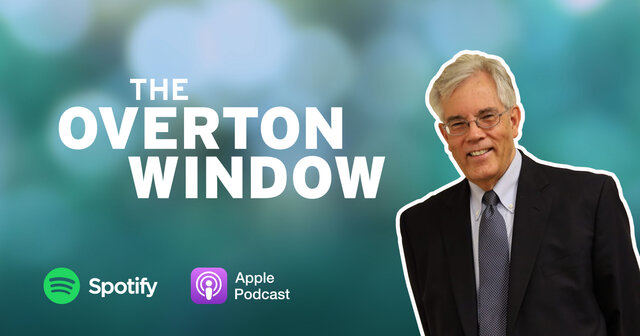
Right to Work laws and the state of American higher education remain two of the most hotly debated issues in public policy, touching on questions of individual freedom, institutional power, and economic opportunity. George Leef, director of external relations at the James G. Martin Center for Academic Renewal, has spent years studying both. He recently joined the Overton Window Podcast to share his insights on how these systems have evolved—and where they’ve gone off course.
“One of my earliest interests was the Right to Work movement,” Leef recalls. His passion for the issue stemmed from a young belief in individual liberty. “I thought Right to Work was darn good policy. Let people opt out of unions if they don’t like what they’re getting,” he says. This principle of choice and autonomy formed the foundation of his work with the National Right to Work Committee.
In 2003, Leef was invited by the Committee’s president to write a comprehensive history of the movement in time for their 50th anniversary in 2005. “Did I want to do it? Well, yeah, I wanted to do it,” he says. That book, Free Choice for Workers: The History of the Right to Work Movement, became a key contribution to the national dialogue on labor policy.
“The reason why I think right to work is so good: It gives workers an escape hatch.” Leef explains that this freedom pressures unions to act in the best interest of their members: “If they know people can leave if they are just absconding with their money and not representing their interests, they’ll do that.”
While acknowledging some setbacks — “Michigan being key among them” — Leef remains optimistic. “Union membership keeps shrinking. The union clout, I think, is less than it used to be,” he attests. Leef attributes this to a growing awareness among workers that, “unions don’t always represent the people they claim to; they’re oftentimes lining their own pockets.”
Leef argues that labor relations were healthier before federal interference. “In our early history, people could sign up if they wanted to, or they were free to not sign up… Then the federal government stepped in and insisted that unions had some special right to represent workers,” he says.
His ideal? “We should go back to the days when labor law was a matter of common law, a matter of contract and tort.”
Leef’s concerns about higher education are equally impassioned. “It kind of got into my soul that higher education was built up as such a wonderful investment for all young people... and it was so utterly false.” He sees a system built on overpromising and underdelivering. “We’ve been overselling higher education ever since the GI Bill.”
This crisis stems from making college too accessible. “This was my own experience. It’s easy for everyone to go to college,” Leef argues. That ease, according to Leef, has created a culture where students spend years in school only to land jobs they could’ve secured straight out of high school. “Politicians sold the idea that your life will be toast unless you get a degree,” he says.
His solution is simple: treat education like a market. “Let higher education institutions figure out how to act like businesses. Provide the benefits that people are willing to pay for with their own money.” Employers are already adjusting, Leef notes. “Big companies, too, like Google… want to see evidence that you have the abilities they’re looking for,” not just a degree.
He’s encouraged by increased transparency efforts. “We’ve won a few fights here in the state of North Carolina. For instance, getting college curricula online so people can find out what’s actually being taught,” Leef says.
In both education and labor, George Leef’s message is clear: empower individuals, increase transparency, and let freedom — not bureaucracy — lead the way.
Listen to the full conversation on The Overton Window Podcast.
Permission to reprint this blog post in whole or in part is hereby granted, provided that the author (or authors) and the Mackinac Center for Public Policy are properly cited.
Get insightful commentary and the most reliable research on Michigan issues sent straight to your inbox.

The Mackinac Center for Public Policy is a nonprofit research and educational institute that advances the principles of free markets and limited government. Through our research and education programs, we challenge government overreach and advocate for a free-market approach to public policy that frees people to realize their potential and dreams.
Please consider contributing to our work to advance a freer and more prosperous state.

Donate | About | Blog | Pressroom | Publications | Careers | Site Map | Email Signup | Contact